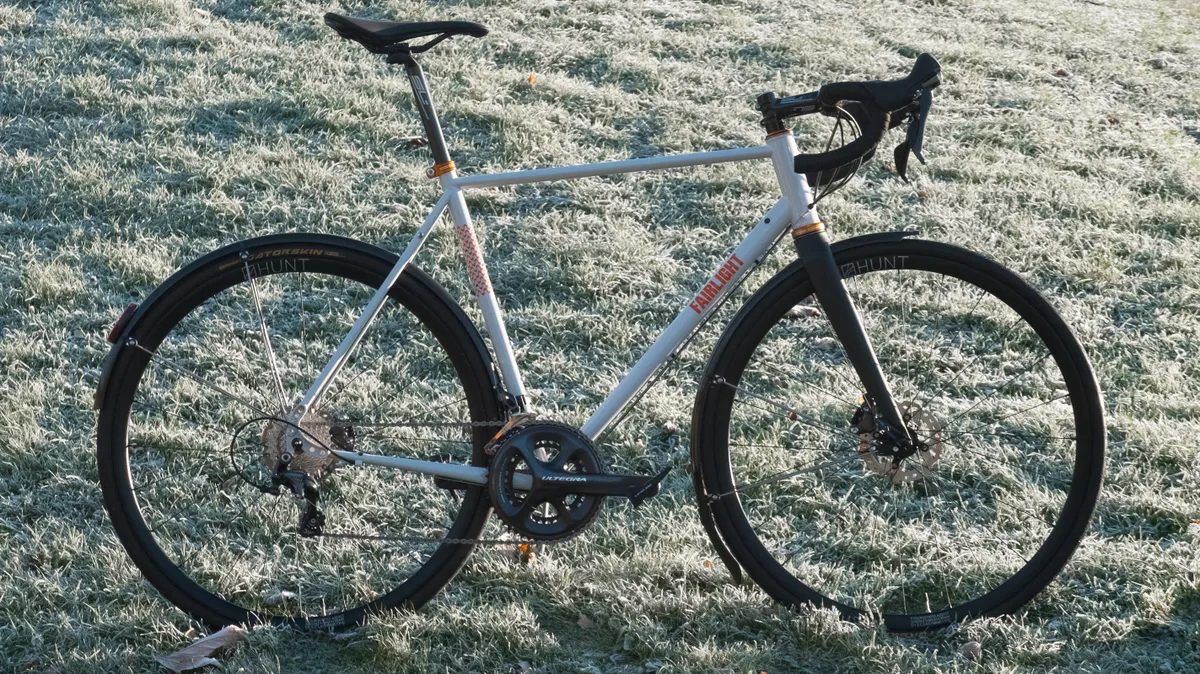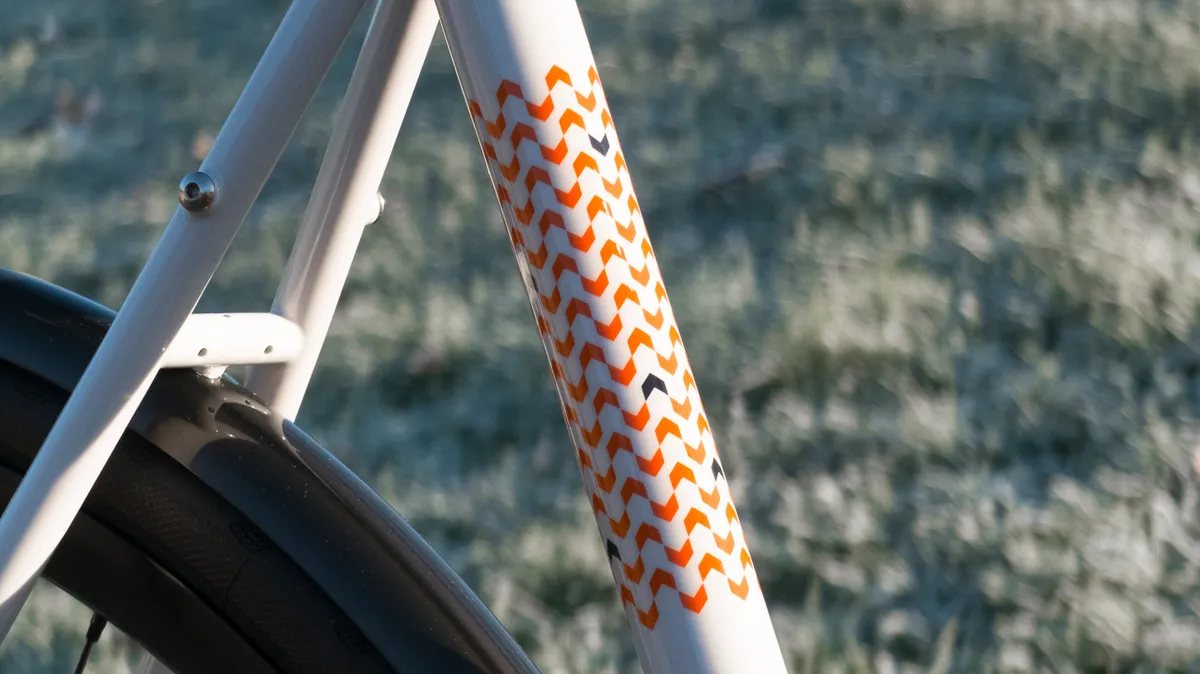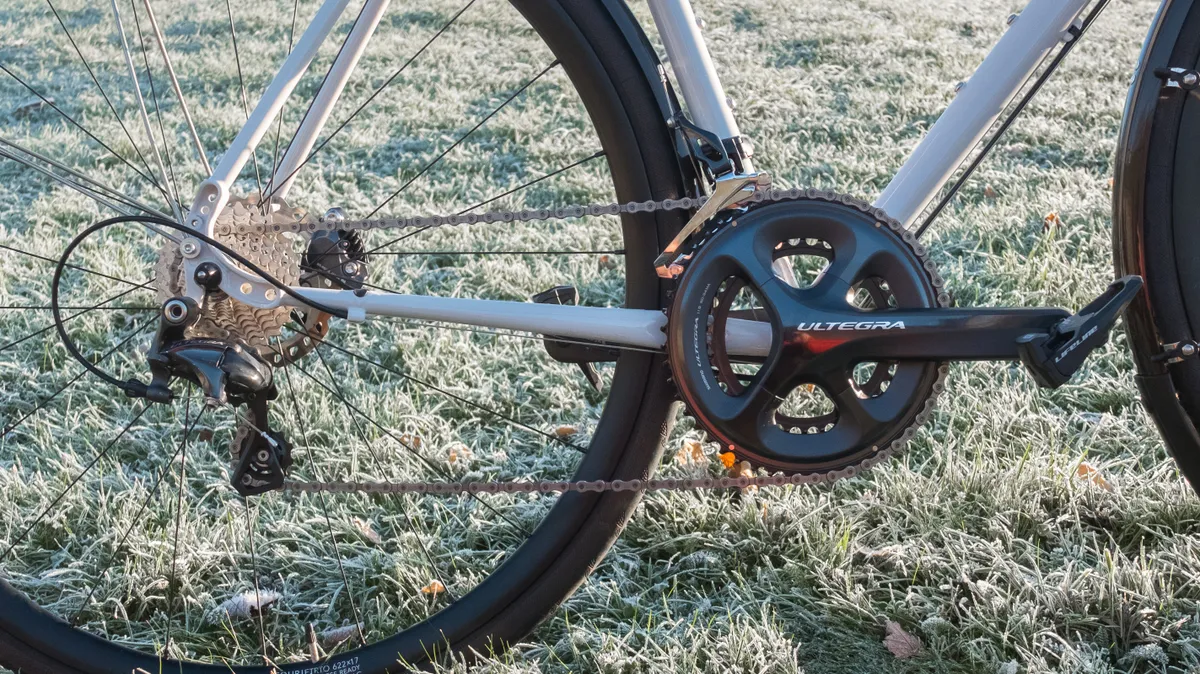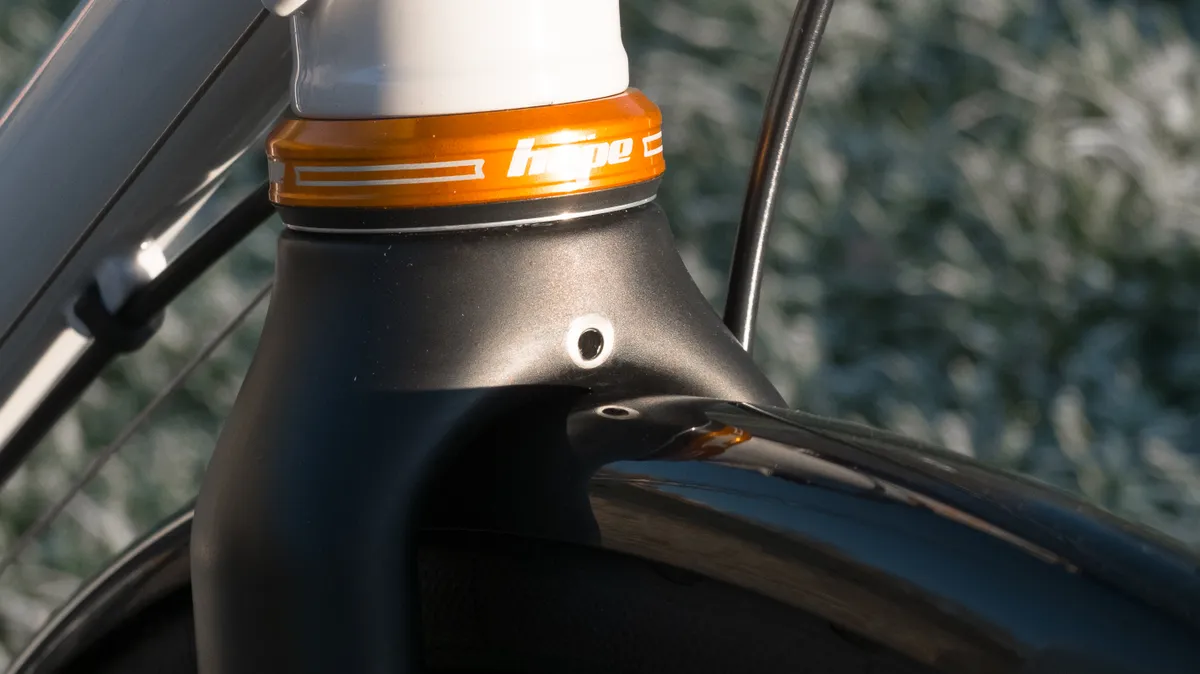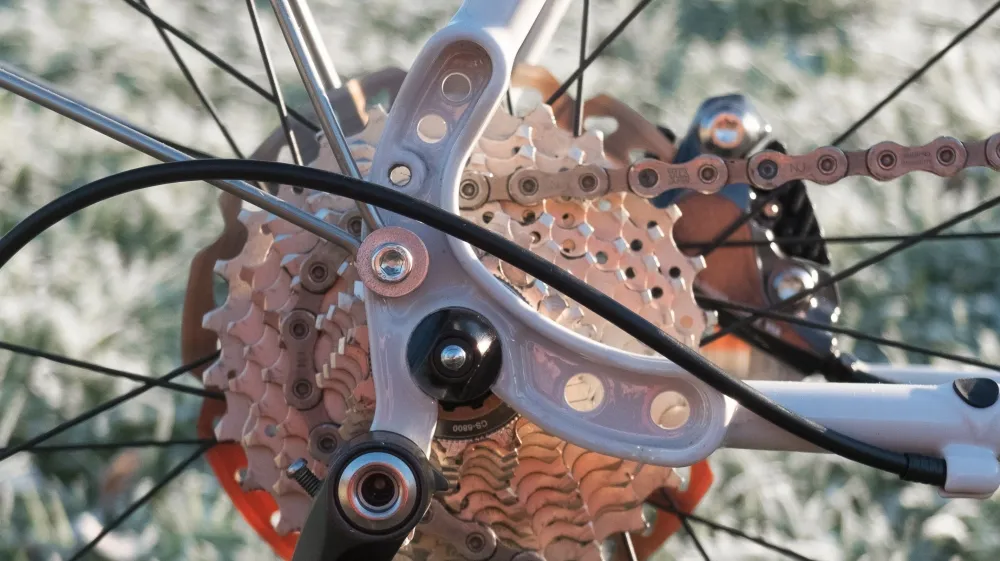Since receiving my Fairlight Strael back in November I’ve clocked up a healthy 1,200km on a diverse mix of road, gravel and singletrack, and with fit options that go above and beyond what most manufacturers offer, a truly exceptional ride quality and supreme versatility, I've thoroughly enjoyed my time aboard the Strael.
But with the seasons changing and thoughts turning towards rides without mudguards, it’s time to check in with how I got on with the bike.
Check out my review of the Fairlight Strael on our YouTube channel
Near bespoke levels of fit refinement
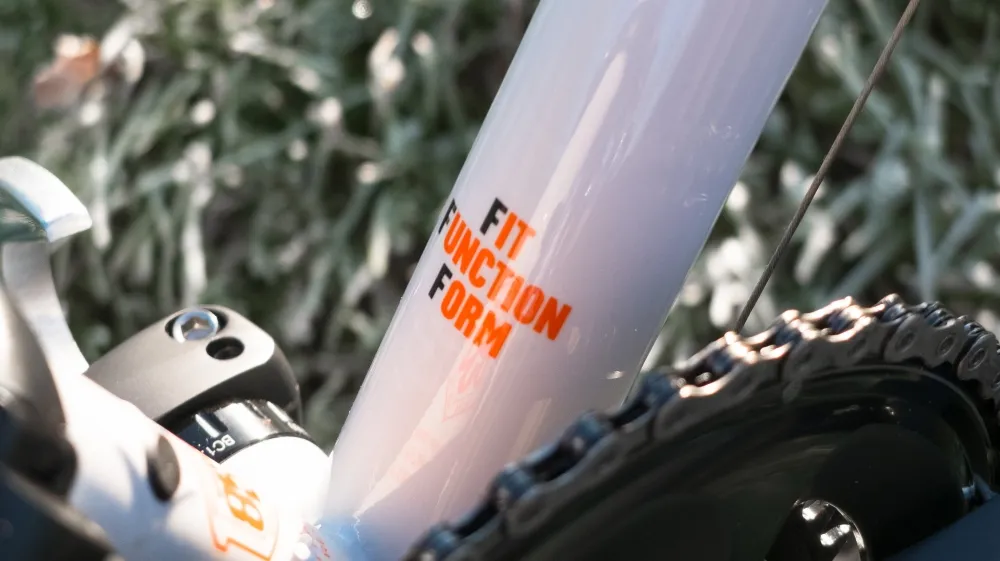
Fairlight’s near obsessive focus on fit is undoubtedly one of the main attractions to buying a bike from the new brand.
As part of its proportional geometry concept, Fairlight offers every size of its bikes in both Tall and Regular options — the Tall bikes are best suited to those with long legs and a short torso and the Regular for those with short legs and a long torso — totalling nine different sizes available.
I’m personally a rather lanky and gangly young man, who typically rides with a saddle height in the region of 800mm. I also prefer a long and low position over anything too upright as I find this typically gives me lower back discomfort.
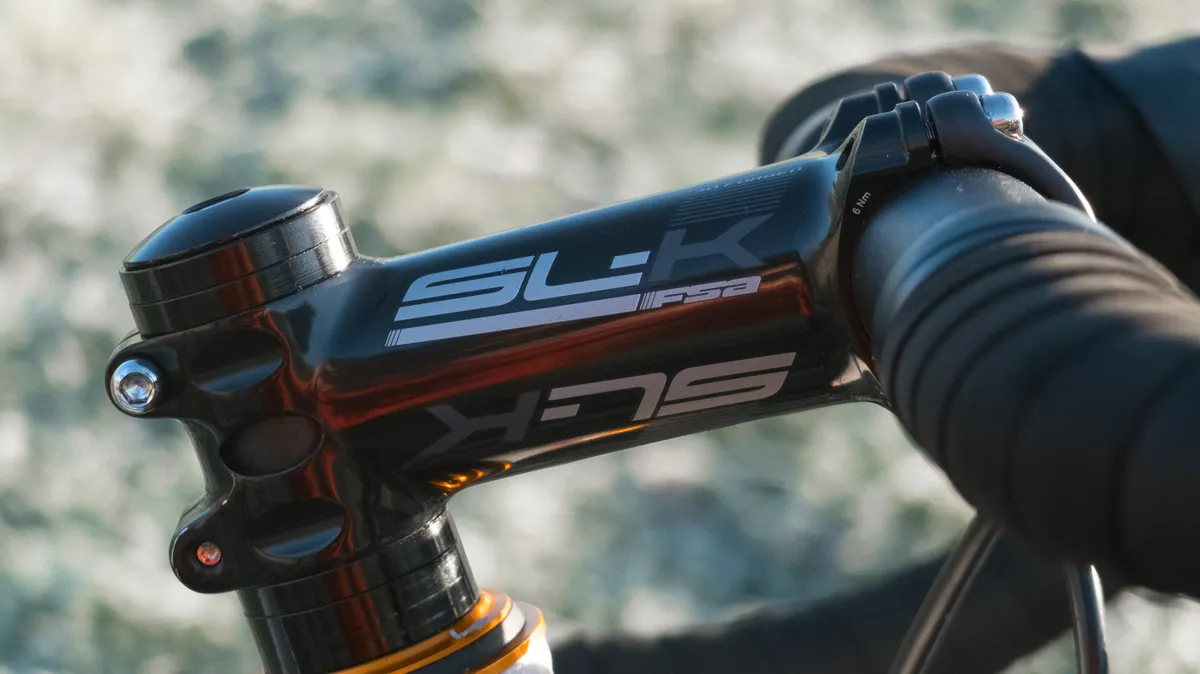
Despite this, it still surprised me when Fairlight suggested a Regular 58cm bike with a 100mm stem would be the right option for me.
This however is one of the advantages of buying a bike directly from those who had a hand in designing it — they know their bikes better than anyone else and, as you will see later in the review, know how to optimise the fit of their bikes for any rider.
The bike arrived from Fairlight perfectly fitted for my bandy, long boy bod. This included my personal preference of 40cm wide bars, which are a relative rarity on larger sized, all-season bikes — which regularly spec mountain bike-like 44cm wide bars.
Knowing that your bike will arrive perfectly fitted for you as soon as it comes out of the box is a huge plus for Fairlight in my eyes, avoiding the faff and expense of swapping out bars and stems and saving you money in the long run.
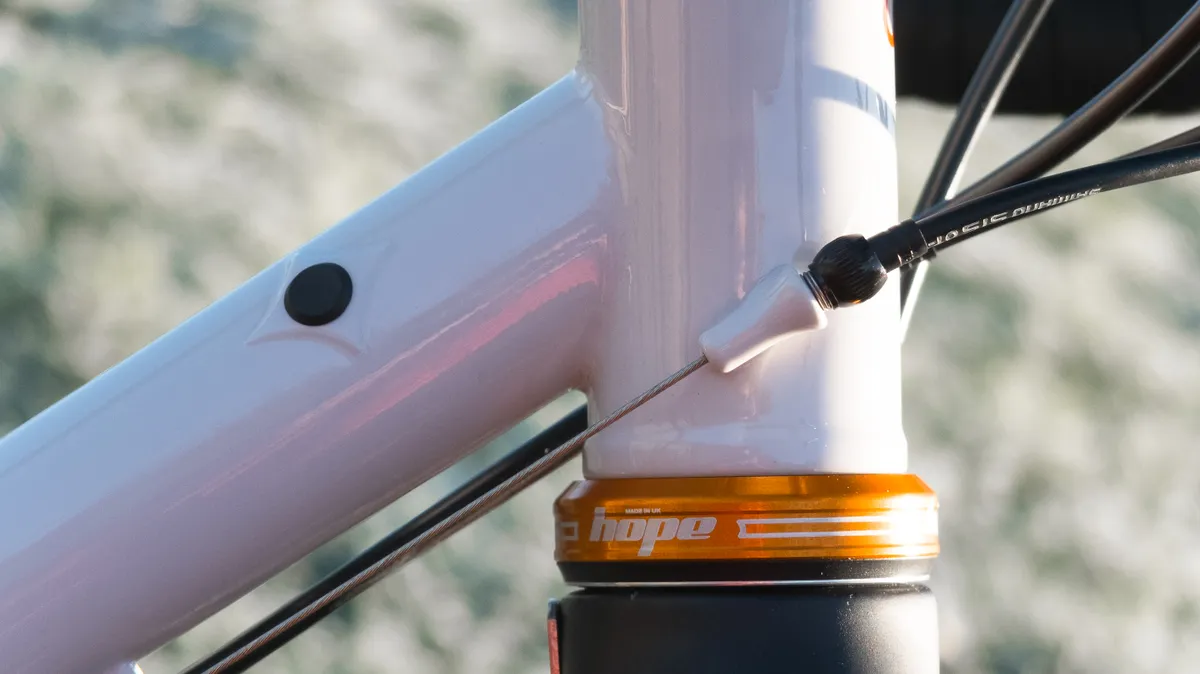
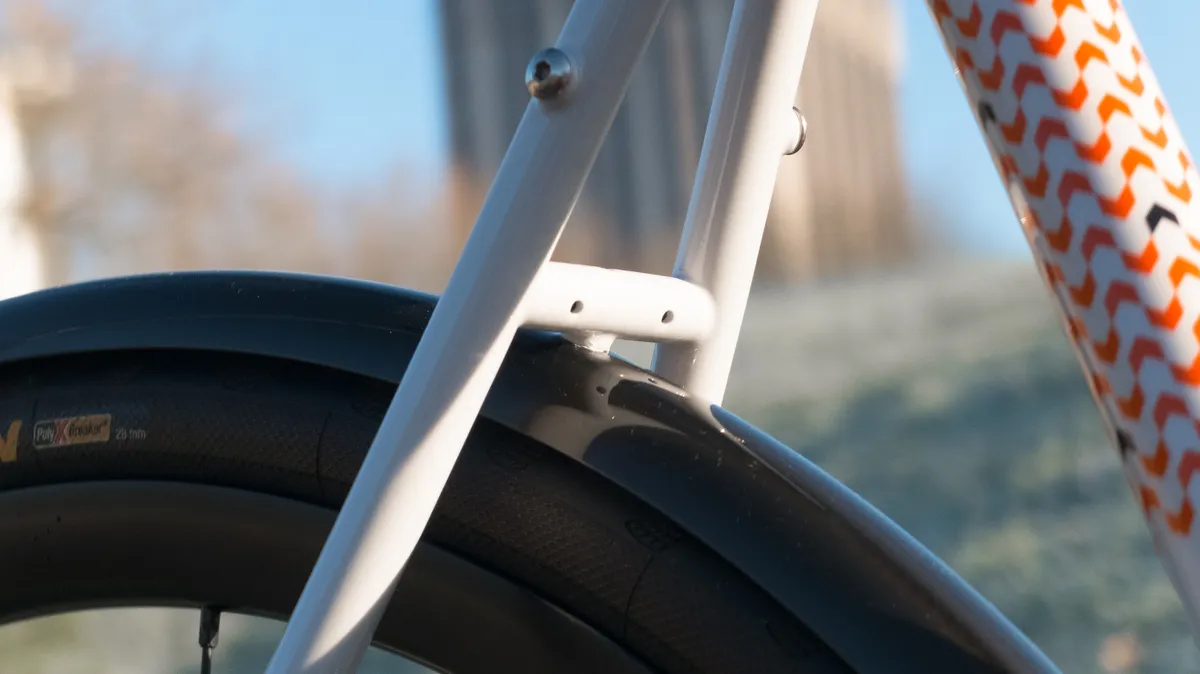
The frame is also packed with lots of nicely thought out details — from the sensibly placed mudguard eyelets to the easy to use external cable adjusters on the downtube, this is a bike bereft of faff.
Exceptional handling and great versatility
Fairlight claims that the Strael is the lightest production steel, disc road bike currently available on the market.
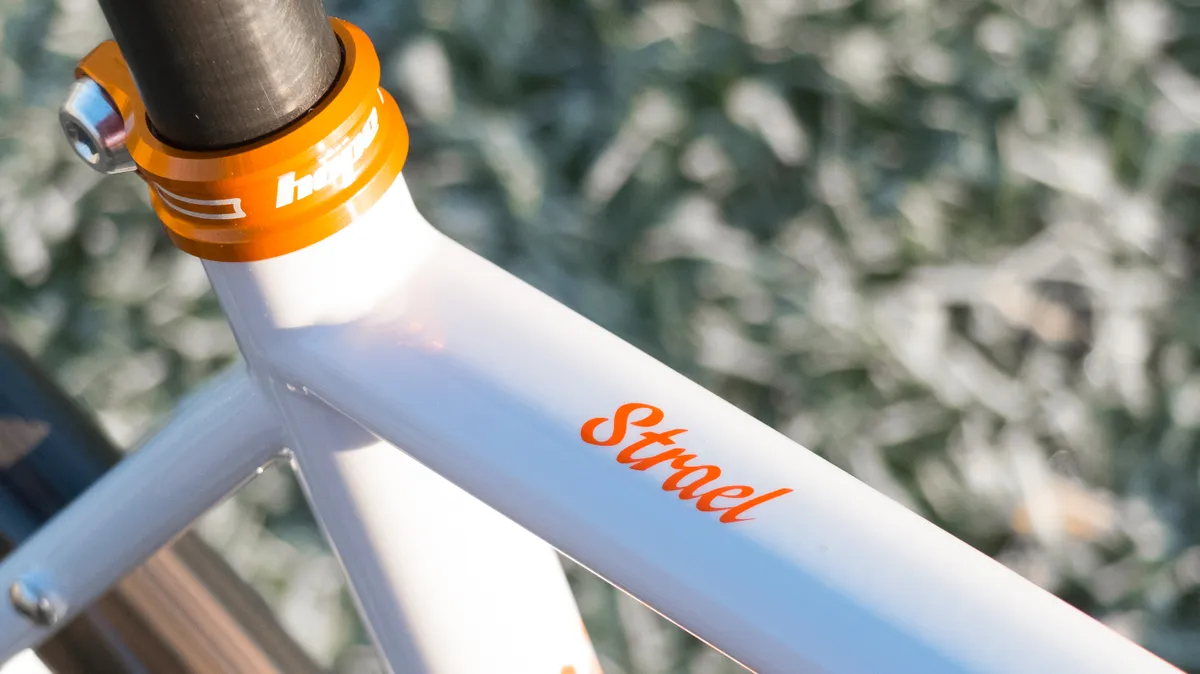
While this is a somewhat odd claim coming from a niche that is generally not that concerned by weight, my Strael weighed in at a very respectable 9.67kg with the optional Hope finishing kit upgrade — an additional £40 (approx $50/AU$65) for the seat clamp and headset — and SKS Longboard mudguards.

Fairlight has achieved this low weight by combining a highly refined, custom-drawn Reynolds 853 frame with a bespoke carbon fork, which has been made specifically for the Strael (you can read more on the design of the frameset here in my first look).
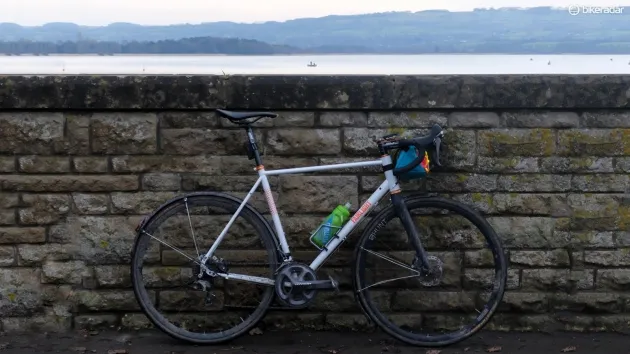
Out on the road, this low weight matched with the smooth ride quality afforded by the Strael’s skinny tubing equates to a seriously comfortable and effortless ride that urges you to ride on for as long as you can handle.
This proved itself most during the many, many hours I spent riding along the choppy, winter-broken roads around BikeRadar’s native Bristol.
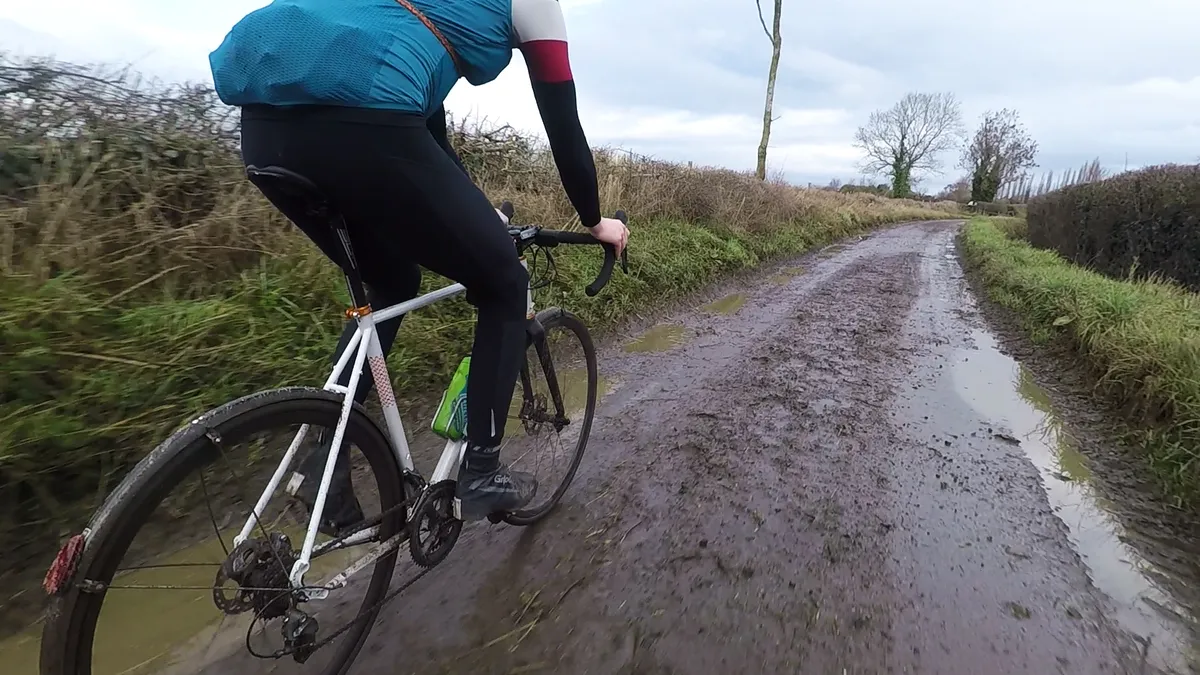
The bike's highly manipulated tubeset — shaped specifically to add a degree of comfort without feeling noodly — held its line incredibly well through this crappy ground and I felt I was able to get the most out of long winter rides on the Strael, finishing merely cold and exhausted rather than beaten to pieces by hours of dodging mud strewn, broken asphalt.
As a naughty gravel-ista, I also indulged in more than a few off-road adventures this winter onboard the Strael.
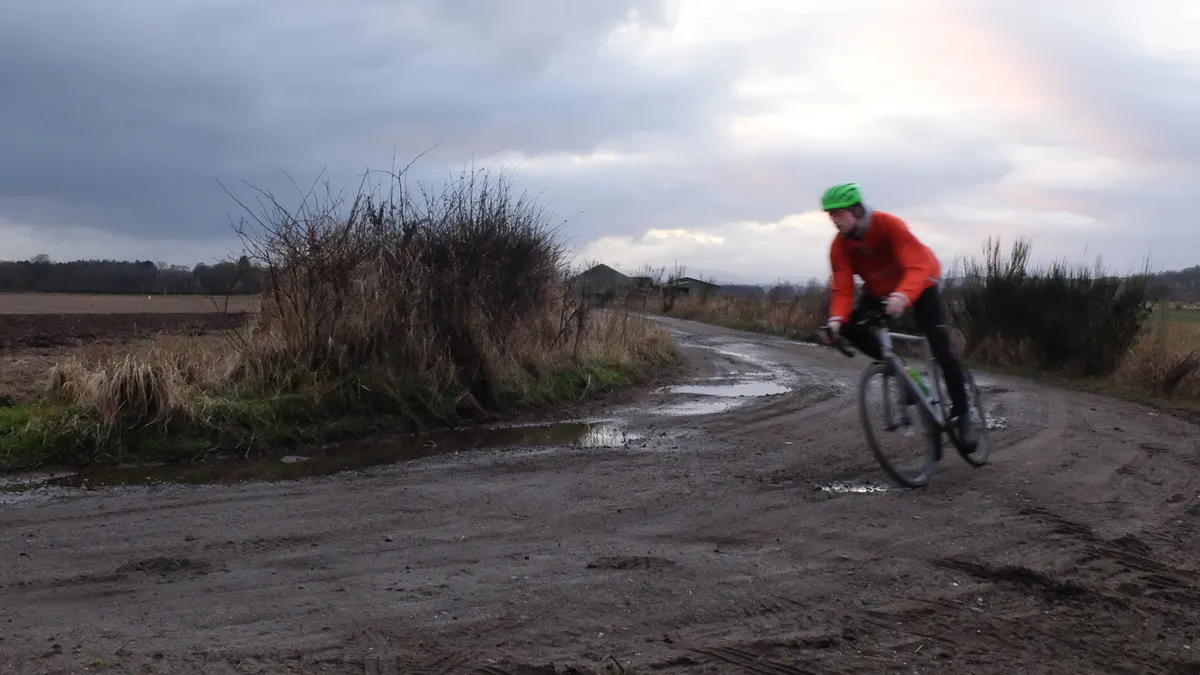
The 853 tubing did a wonderful job of smoothing out the worst bumps and the bike handled these gnar-mac detours with ease.
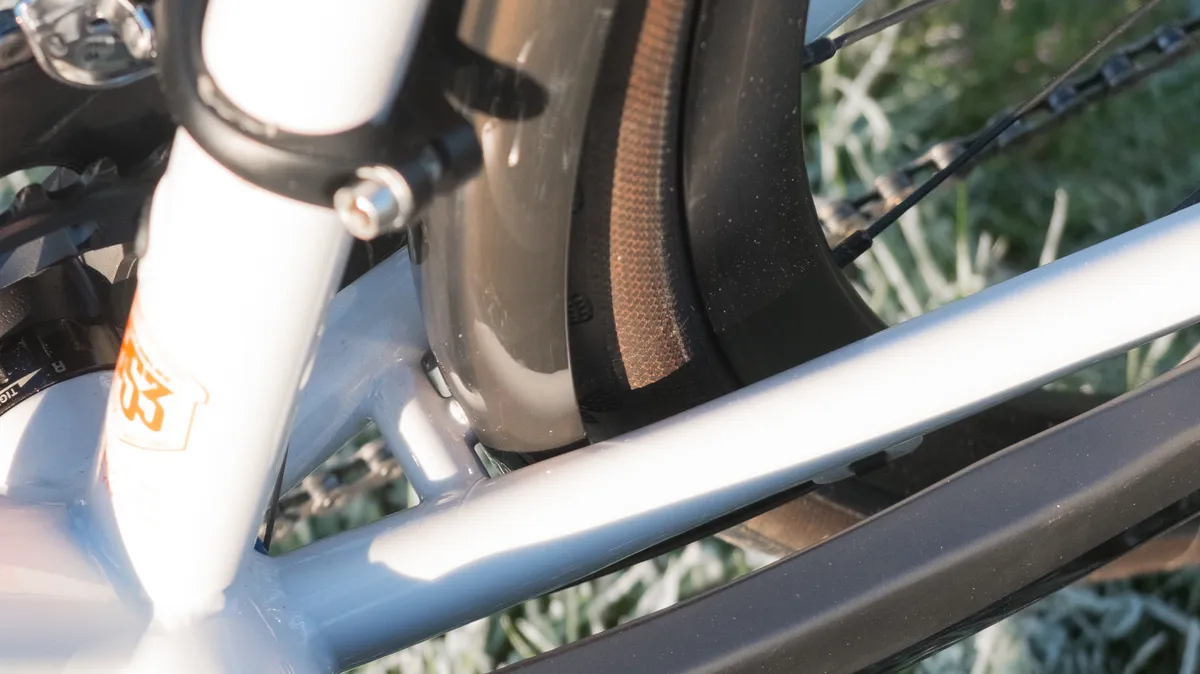
If you do plan on doing lots of riding on unpaved surfaces, it’s worth noting that the Strael is designed to accommodate 28mm tyres with mudguards or 33mm without.
While this will be plenty for most riders, I’m a shameless fat-road-tyre evangelist and would have liked to have been able to fit wider tyres with ‘guards to the bike for truly foul, dirt road deviations.
Hitting the hills, I didn’t find the Strael to be the most exciting climber I’ve ridden, but I don’t think that it really set out to be — if you’re in the market for a high-end steel road bike, you’re likely interested in the comfort, looks and practicality that such a bike affords, rather than out and out speed.
That said, I’ve ridden the Strael on many hard #AMKMKlub training rides this winter and have clocked some good times on our local hills.
Despite being so comfortable, the Strael still maintains a spritely and snappy ride, I just don’t think it’s the fastest feeling steel bike out there.
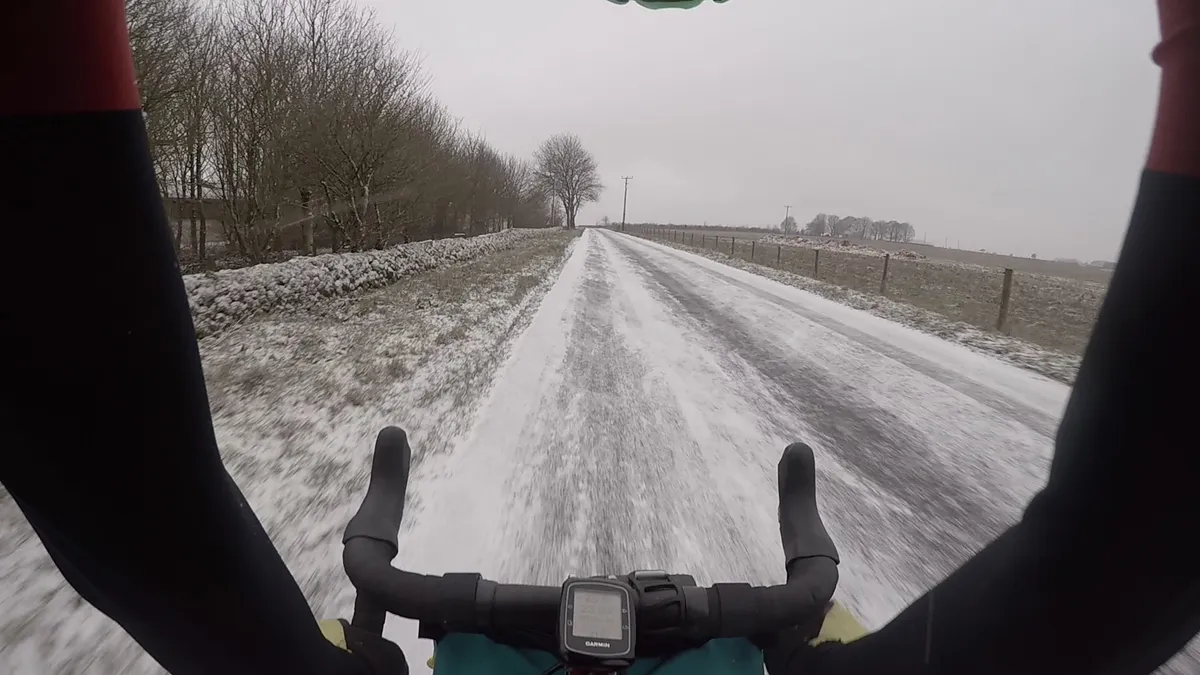
Descending however is a whole other story — pointed downhill, the Strael is damned fast. I believe this is due to a number of factors.
Primarily, I found that compared to other all-season bikes I’ve ridden it felt as though my weight was much more centralised ‘in’ the bike rather than over it and I could approach tight corners with a level of reckless abandon that I am yet to match.
I believe this is a function of the good fit achieved using Fairlight's Proportional Geometry concept, which rather than the usual upright ‘sportive’ fit of all-season road bikes, placed me in a far more confidence inspiring and controlled position.
Speaking to Dom Thomas, the co founder of Fairlight, he also stated that despite the all-season leanings of the Strael, he designed the frame to “use relatively steep head and seat tube angles [73.5HA, 73 SA on my 58R bike], which when combined with relatively short chainstays (418mm) and fork (381mm)” makes for a bike that “would handle like a race bike with fast and responsive steering”.
As I mentioned previously, the compliant frame — which is very able to take the sting out of potentially destabilising bumps — also aided confidence once I picked up speed.
The front end however felt suitably stiff — possibly aided by the shorter than usual axle to crown height of the fork and bi-oval downtube — when it was time to pull on the brakes, with the fork never fluttering back and forth even under the heaviest, most panicked-handful-of-lever loads.
I’ve ridden a lot of great and very capable steel bikes in my time, but I can confidently say that the Strael is the most fun bike I’ve swung a leg over when things point downward.
Slightly disappointing tyres
As I suspected in my first look, the ride quality of the Strael is somewhat let down by its stock, 28mm Continental Gatorskin tyres.
Fresh out the box, the tyres had a slightly greasy feeling coating which, when combined with their hard-ish compound and stiff sidewalls, weren’t the most confidence inspiring ride — particularly in the wet.
The ride quality of the tyres did improve after a 100km or so, but I was soon plagued by approximately a zillion punctures, the majority of which were caused by thorns going directly through the tread of the tyre.
I understand that my experiences are at odds with the majority of riders who have used Gatorskins, and it’s hard to ascertain whether my problems were merely just a reflection of how bad the roads have been this winter. Regardless, I still think there are better tyres — such as the venerable Panaracer Pasela — out there for year-round riding.
However, as with many things on the Strael, swapping the tyres out for some plusher rubber is an option and Fairlight will upgrade your tyres to the venerable Vittoria Corsa for £36 (approx $45 / AU$59) or the slightly hardier Continental GP4000S2 for £42 (approx $53 / AU$68).
Wheels
The Strael comes stock with Hunt’s 4Season disc wheelset. On paper, these impressively light (1,629g claimed), 24 spoke, 20mm wide hoops look like an ideal match for the all-road minded Strael, but I found them to be a little disappointing during testing.
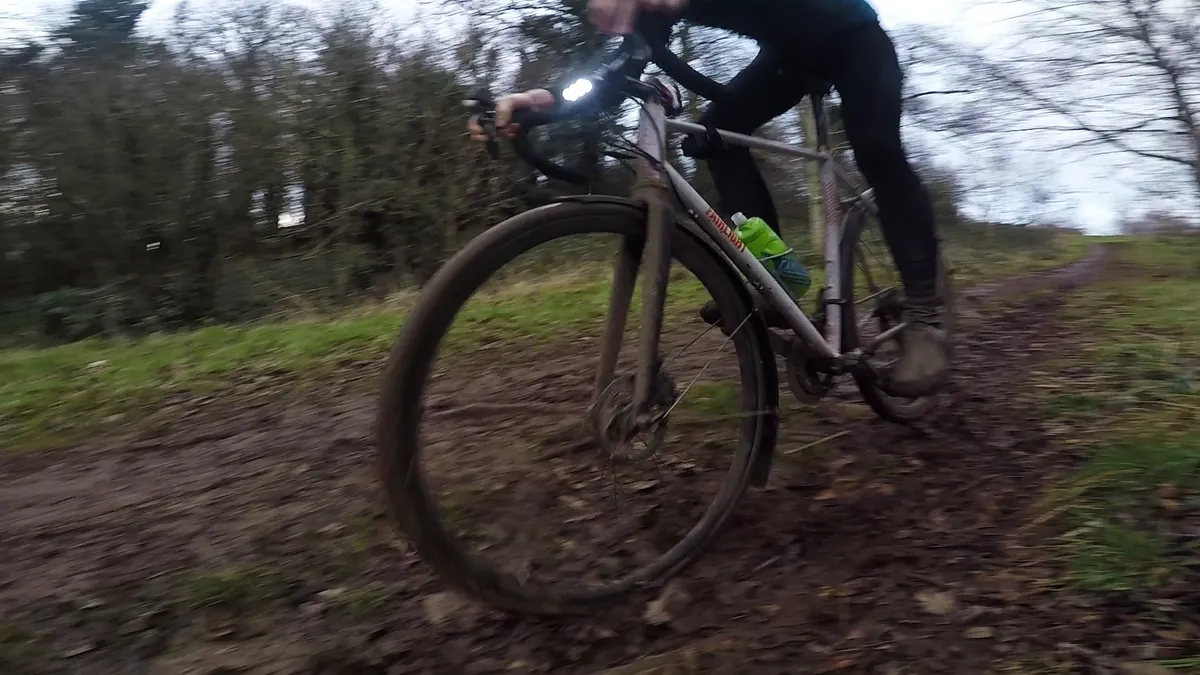
Within a few weeks of riding the Strael, I managed to buckle both wheels riding the aforementioned mix of winter-broken roads and light gravel detours.
Despite being made from typically weatherproof brass, the nipples on the wheels also fell victim to salty roads and seized in place just as the wheels developed their buckle.
After a thorough scrub and a week’s worth of regular oiling, I did eventually manage to loosen up the nipples, allowing me to true and re-tension the wheels, but this was a faff I would have rather avoided.
I later spoke to Hunt about my issues and Hunt was keen to point out that it uses threadlock when building its wheels, so this may have contributed to the feeling of them being seized when I tried to true them.
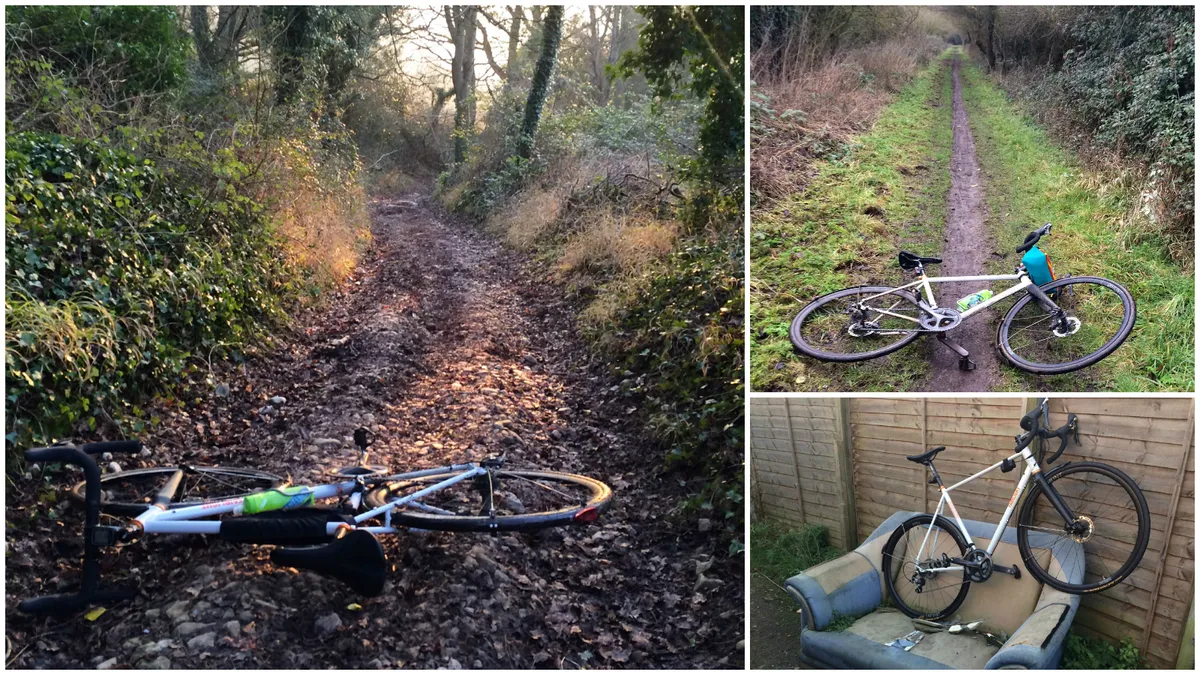
I should also admit that I am very guilty of taking road bikes across all sorts of highly inappropriate terrain and really have indulged in plenty of gnarly gravel and singletrack detours during my time testing the Strael.
That said, I still expected far better durability from a set of wheels that are marketed as all-season, crossy-gnar ready hoops.
However, for a very reasonable £46 ($57.50 / AU$75) Fairlight will upgrade your Strael with a pair of more burly 32 spoke Hope 20Five wheels, which are laced to the British brand’s excellent Pro 4 hubs. There’s even a chance to match the hubs with the rest of the optional Hope finishing kit!
While I imagine the Hunt 4Season wheels will meet the needs of most, if you do plan on taking full advantage of the Strael’s all-road capabilities, I reckon you’ll be better served with the more durable Hope wheelset.
Near perfect all-season road bike
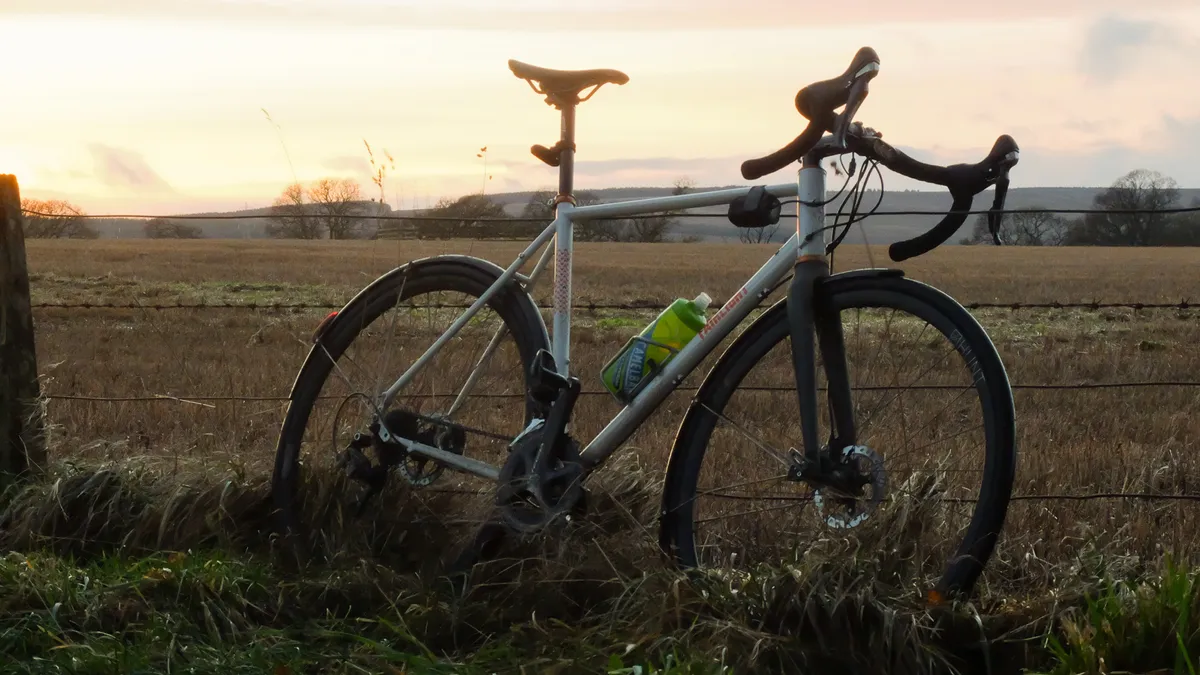
The Strael is without doubt the nicest steel road bike I’ve ridden. As a self-professed metal-bike nerd, this is not a statement that I make lightly!
While it’s usually possible to replicate your ideal fit on a bike that is at least close to your correct size, I believe that Fairlight’s Proportional Geometry concept approaches near custom-frame levels of refinement — that won’t compromise handling in any way — for even the most disproportionate of body shapes.
While I was left somewhat disappointed by the wheel/tyre combo on the Strael, if you discount the cost of potentially having to replace the handlebars and stem on another bike to get your fit right, the imminently affordable upgrades on offer seem less frustrating.
I believe that the superb handling, exceptional comfort and level of finishing afforded by the Strael is unmatched by any other all-season steel road bike — this is undoubtedly a five star bike that's only let down by its slightly disappointing wheel/tyre combo.
The Fairlight Strael Ultegra is available outside of the UK for £1,999.17 with shipping processed at the time of order.
